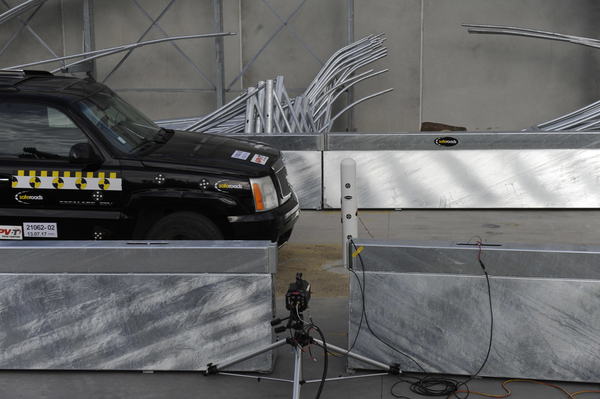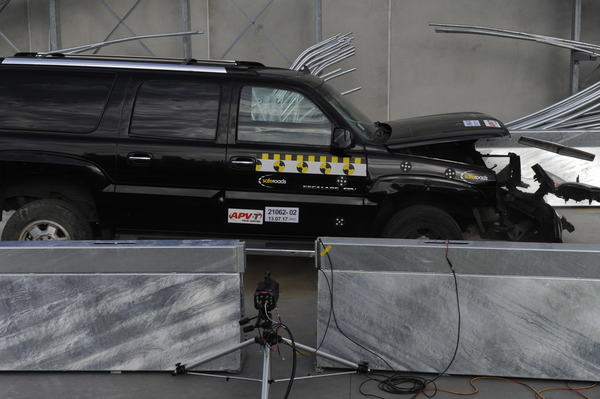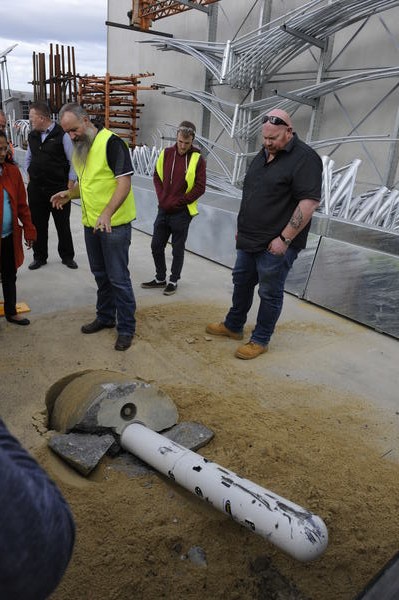By Bonny Burrows
A Pakenham road safety company is working to develop a product that could protect Australians against possible terror attacks.
Saferoads is using simulation software, the only type of its kind in Australia, to develop and test security bollards and other safety barriers at its Commercial Drive site which could stop a vehicle in its tracks while not limiting pedestrian mobility.
The company, which specialises in road safety equipment such as public lighting, temporary barriers and energy absorbing bollards, is looking to create a deterrent to vehicle-related terrorism, similar to the concrete blocks in Melbourne’s CBD.
Saferoads Engineering Manager Casey McMaster said the intention behind the concrete blocks was “great, but the science hasn’t been done”.
This is where Saferoads’ technology could help, he said.
“We’ve looked at the current issues and thought ‘we’ve got some ideas, let’s see if they work’,” Mr McMaster said.
With the simulation software the company can test possible designs and scenarios with minimum cost and risk.
Then, once the specifics are worked out, Saferoads is able to trial the product against a vehicle in a safe, controlled environment.
One concept the company is investigating is that of a row of three-metre slightly slopped segments with a 1.5m space between barrier posts – something that pedestrians could easily walk through with prams or wheelchairs that would stop vehicles.
It is also investigating other possible methods including an Omni Stop Ultra Security Bollard which was crash tested against a 2270kg vehicle travelling at 50 km/h on 13 July.
At such speed, the post can be hit by up to 70 per cent more force than the vehicle’s weight.
Witnessed by the Gazette, the research and development test was deemed unsuccessful because although the vehicle was stopped the bollard was ripped from the ground.
However, the recorded data from the failed test will now be used against an earlier successful test conducted in May to learn more about what changes are required to create an effective product.
Saferoads CEO Darren Hotchkin said that while such a bollard was yet to be built, “we’ve got the ability to create something where we can get a mass of people through an area but not a car”.
The organisation said it was excited about the impact it could have on anti-social and anti-terror type road related events, behaviour and death toll.
“It’s a small niche area worldwide, and we just happen to be in Australia and Victoria,” Mr McMaster said.









